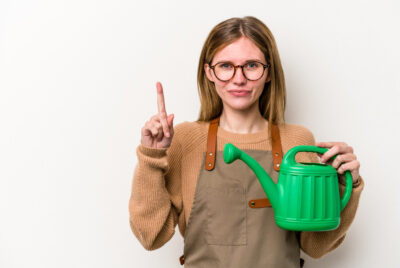Worms Cannot Wee!
Worms cannot wee, so what do we do now?
When it comes to worm farming, there’s a lot of buzz about the benefits of worm castings and leachate. There’s some pretty interesting discussions online – many of which are based on misconceptions. One of the most common (and problematic) misconceptions is the idea that worms “wee” in the garden. But here’s the truth: worms cannot wee!
They don’t have a bladder or a urinary tract. What they produce are castings, or worm poop, and this is where all the goodness for your plants lies.
This article will clear up some confusion and explain why it’s crucial to use the correct terminology when talking about worm farming, especially for newcomers. Whether you’re just starting your worm farm or you’re already a seasoned pro, understanding the difference between leachate and worm castings can make a world of difference to the health of your plants.
The Importance of Proper Terminology
Let’s face it, language matters. The terms we use in gardening and worm farming are more than just technicalities – they shape our understanding and approach to the process. When people refer to “worm wee,” they might be confusing two very different substances: leachate and castings. By calling leachate “worm wee,” we risk misleading beginners into thinking it’s something beneficial when, in reality, it’s not the same as the rich, nutritious worm castings that your plants love.
What Is Leachate and Why Does It Cause Confusion?
Now, let’s break down what leachate actually is. Leachate is the liquid that drains from a worm bin, typically collected from a tap at the bottom of the bin. It’s often thought to be a liquid version of worm castings, but that’s far from the truth. Leachate is actually the result of excess moisture in the worm farm, often combined with decomposing organic matter.
The Debate Around “Worm Wee”
Some may argue that leachate, diluted 10:1, could be a good addition to your garden because worms “wee” in the garden anyway. This why it’s important to separate myth from fact, especially when new worm farmers are involved.
The Problem With Calling leachate ‘Worm Wee’
By calling leachate “worm wee,” we imply that it’s a natural, beneficial liquid produced by worms for the garden. But the reality is that this liquid, while it may contain some nutrients, is far from the same as the castings that worms create. Leachate may often contain harmful substances such as pathogens and anaerobic bacteria, which can be detrimental to your plants if not used properly.
The Science of Worm Digestion
So, why do worms not wee? Well, worms have a unique digestive system that doesn’t involve urination. Instead of a urinary tract, worms have a specialized gut where organic matter is broken down, processed, and excreted as worm castings. These castings are rich in beneficial microorganisms and nutrients that plants thrive on.
Why Worms Don’t Have a Urinary System
Worms lack the complex biological systems that humans or other animals have, including a bladder or kidneys for processing waste. Instead, they have a simple, effective method of digestion where the waste is expelled as nutrient-rich castings. This waste is incredibly beneficial for soil health, adding essential minerals and promoting healthy microbial activity.
Worm Castings: What They Are and Why They’re Beneficial
Worm castings are essentially worm poop, but they’re packed with nutrients and beneficial microbes that help plants grow strong and healthy. The castings are created as worms consume organic matter, break it down, and then excrete it as nutrient-rich material. This process enhances soil structure, improves moisture retention, and boosts plant growth.
Nutrients in Worm Castings
Worm castings contain essential nutrients like nitrogen, phosphorus, potassium, calcium, and magnesium. These elements are vital for plant health. Additionally, the microbial life in the castings helps to break down organic material, making these nutrients more available to plants.
Why Leachate Isn’t the Same as Worm Castings
While leachate may seem like a ‘convenient liquid fertiliser’, it simply can’t compete with the rich, well-processed nutrients found in worm castings. Leachate is often an anaerobic, acidic liquid that contains partially decomposed matter, and it can sometimes contain harmful bacteria. Worm castings, on the other hand, are well-processed, rich in beneficial microbes, and contain a balanced mix of nutrients that plants love.
The Potential Dangers of Leachate
Leachate can contain harmful substances such as ammonia, which can burn plant roots if not properly diluted. It also often contains pathogens, making it risky to use on edible plants without careful consideration. Unlike castings, which are stable and safe for plants, leachate can cause more harm than good if misused.
How Leachate Can Affect Plants
Leachate, when used improperly, can disrupt the delicate balance of nutrients and beneficial microorganisms in your soil. It can also increase the risk of plant diseases. If you’re looking to boost your garden’s health, it’s always better to stick with worm castings or worm tea, which are safer and more effective.
The Right Way to Use Worm Castings
Instead of relying on leachate, it’s much better to use worm castings directly or make worm tea. Worm tea is an aerated extract made from high-quality castings, which can be applied to your plants to give them a nutrient boost.
How to Make Worm Tea and Extracts
To make worm tea, simply add worm castings to water, aerate it for several hours, and then strain out the solids. This process helps to create an environment where beneficial microorganisms can flourish, which is what you want to introduce to your plants.
Aerating Your Worm Tea for Maximum Benefit
Aerating your worm tea is key to ensuring that the beneficial bacteria thrive. The oxygenation process helps to activate the microorganisms in the castings, which in turn boosts plant growth and soil health.
Common Misunderstandings About Worm Farms
Worm farming has become a popular hobby for many people, and that’s fantastic! The more people involved, the better. However, there are still some misconceptions that need addressing, especially when it comes to understanding the proper care and maintenance of worm farms.
The Trend of Home Worm Farms
The trend of home worm farms has been growing rapidly, and it’s great to see so many people getting involved in sustainable gardening. However, it’s important to understand the nuances of worm farming so that we can all benefit from this amazing practice.
The Importance of Proper Care and Management
Running a worm farm isn’t just about collecting castings or leachate. It’s about creating a balanced ecosystem where worms thrive. Proper care and management ensure that you get the best results, whether you’re growing plants for food or decoration.
Conclusion: The Best Practices for Your Worm Farm
In conclusion, while worm farming is an incredibly rewarding endeavor, it’s essential to get the terminology right and understand the science behind the process. Worms don’t wee, and leachate isn’t the same as worm castings. For the best results, stick with high-quality castings or worm tea. Remember, the goal is to support your plants with the best, most beneficial organic matter possible—don’t settle for leachate!
FAQs
- What is the difference between worm castings and leachate?
- Worm castings are solid excrement packed with nutrients, while leachate is liquid that drains from the worm bin, often containing harmful substances.
- Worm castings are solid excrement packed with nutrients, while leachate is liquid that drains from the worm bin, often containing harmful substances.
- Can I use leachate on my plants?
- While you can use it in diluted form, it’s better to focus on using worm castings or worm tea for a safer, more beneficial approach.
- While you can use it in diluted form, it’s better to focus on using worm castings or worm tea for a safer, more beneficial approach.
- What are the benefits of worm castings?
- Worm castings improve soil structure, enhance water retention, and provide a balanced mix of nutrients that promote plant growth.
- Worm castings improve soil structure, enhance water retention, and provide a balanced mix of nutrients that promote plant growth.
- How do I make worm tea?
- Mix worm castings with water, aerate for several hours, and strain to create a nutrient-rich tea for your plants.
- Mix worm castings with water, aerate for several hours, and strain to create a nutrient-rich tea for your plants.
- Is it safe to use worm castings on edible plants?
- Yes, worm castings are perfectly safe and beneficial for all types of plants, including edibles.




